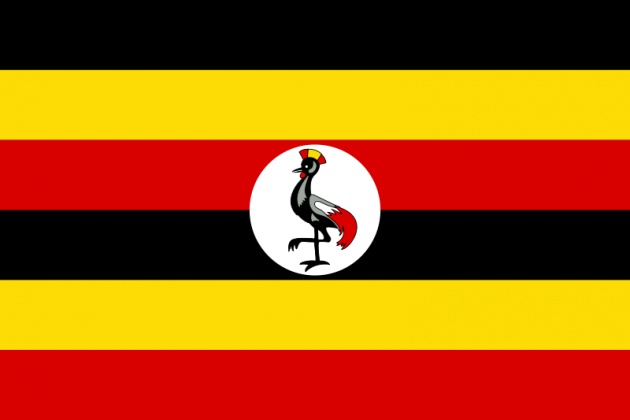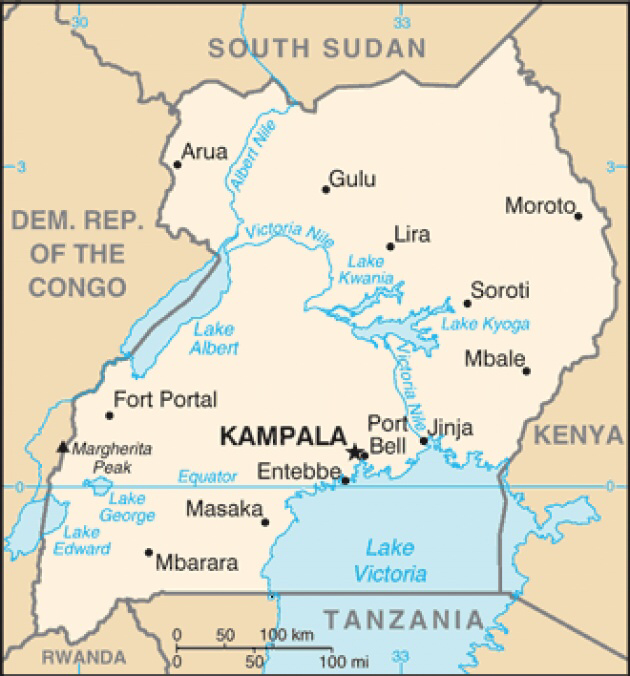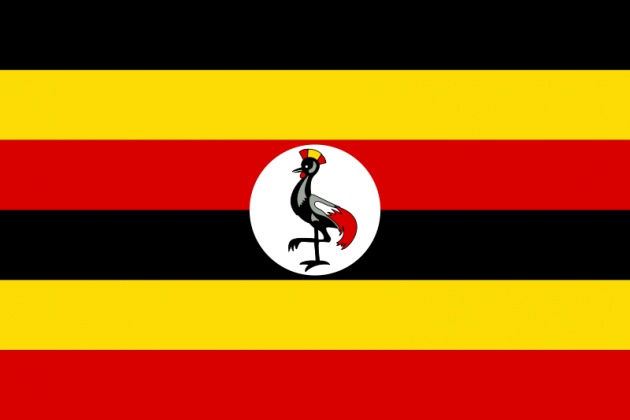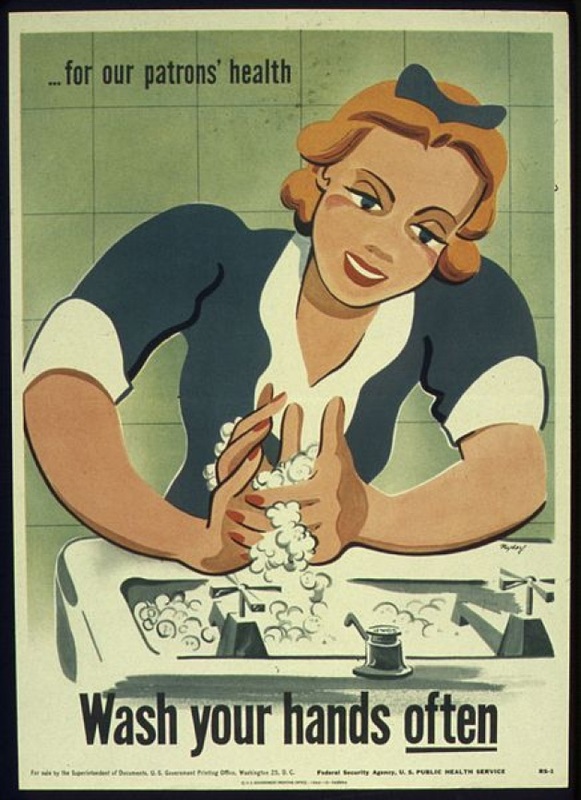|
Here is the second part of my interview with Eryn Wright a woman who exemplifies the concept of women for women in her daily life. She made a trip to Uganda to work in a clinic and I interviewed her about her experiences there. This is a slightly abridged version of the second part of the interview. What's most striking to me is how she doesn't allow her ideas of female empowerment to color her attitude towards the women in Uganda. If anything it only feeds her desire to understand how to empower women who are different from her without offending and overstepping her bounds. LILLIAN - If the mothers needed HIV medicine, did they have enough there to give to everyone? How does that work? ERYN- It's not so much whether or not they have access to medication, most of the time, it's whether they will take it. Every single day. You can't miss a day. Some people can live quite far from where they need to pick up the medication. Also it's easier to pick up other diseases. Malaria runs rampant, and you have to take medication for that. I think education is paramount. If you miss a day, or a couple of days, the virus is so smart, so resourceful that it will develop an immunity to the medicine, and you'll have to go to a different treatment plan. You mentioned how there were signs up all over the place, and on your blog there's this one that says - "Avoid Morning Sex". Was this related to HIV? No, no. We were told morning sex takes away from the most productive part of the day for most people. So chances were if you started with that you wouldn't get anything done. What was the biggest cultural difference that you noticed? The most startling one for me, was this lack of curiosity. Question accepted theories, don't just take what you're told and not think about it. Try and sort of think of it for yourself, and develop your own opinions... In particular it was the medical stuff that really got to me in terms of peoples health. When they weren't questioning things for themselves. To a certain degree their hands are tied. Were really lucky here (in Canada), for the most part we can say what we want to say. Canada has great health care from what I hear. We're really jealous of you here in the states. We have fantastic health care, we really do. That was another thing trying to decipher the differences between the Western World and Africa. It sounds like you were a good go between. With your knowledge of an excellent health care system and sense of empowerment. I think so, I'm a researcher. I took human kinetics in university, Kinesiology, and my thesis was on medical diets and memory. The basis of it was, how much does memory effect ones' ability to follow a special diet? The point of it was to show there is a reason to post labels for people who have intolerances. A lot of countries have that, they have required labeling, Canada doesn't. I actually got quite attached to the project, because I realized I was gluten intolerant. After I came back from Africa it got exacerbated because of the malaria. Green anaconda (Eunectes murinus). Copyright © 2006 Steven G. Johnson and donated to Wikipedia under GFDL and CC-by-SA. You had malaria? Yes twice. My anti malarials were giving me very very vivid dreams, to the point of hallucinations. When you work in a hospital where you see death all the time you don't need more in dreams. So I stopped taking them a couple times. I would actually wake up terrified, absolutely sure that what had happened in my dream was real, that's how vivid they were. I had this dream that there was a giant anaconda in my room, and for ten minutes I was sure it was in my room. Anti malarials are good but they're not 100% anyway. For everybody there it's actually quite common, every time you're sick they think you have malaria. What's the most memorable, powerful thing you took away from Uganda? Ok well the most memorable powerful thing ... other than my fiancee... Really? Your fiancee? Yes. We get married November 25th. Other than that... Well that's pretty big. Yes, but that's a relationship/ romance kind of thing. The most powerful thing I took away from it, I learned a lot about myself. I could take a lot more than I thought. I kept testing myself further, where are my boundaries emotionally, how much can I stand to see. I managed to keep my composure during the experiences. You can't close yourself off, a lot of people say, "just close yourself off, you can't feel anything". But you're working with people, this is sad, and if you're not being real about it, patients can feel that. If you're detached, it's not the same as honestly being empathetic. Not breaking down yourself but acknowledge this is a human being who is going through probably one of the worst moments in their lives. There was a moment, in the clinic, when a baby was having difficulty breathing, and had they had an oxygen tank that was working she would've survived. But I sat with her, as she struggled breathing and finally took her last breath... And she (the mother) came up to me and asked, "is the baby going to be all right?" And the nurse came up to her and said, just very matter of fact, "The baby is dead." And the sound that came out of the mother, the heartbreak, and the cry that she let out, really touched a nerve in me... Why would anybody think it would be different for anybody just because they live on Africa? Just because it happens alot? You lose all those hopes and dreams, and all the love you have already for that child. It highlighted the importance of every life, anywhere in the world. It's universal. You might not know what it feels like to be in that position, but you can only imagine how you would do anything to change that. Map of Uganda from CIA World Fact Book
Would you recommend world travel to other people? I think it's a brilliant idea, so long as you go into it with an open mind and an open heart. Actually it can be more damaging to the place you visit than to you if you don't go into it with an open mind. First of all, you don't want to offend anybody. Try not to make financial donations to people, because then the people who come after you will be expected to do that as well. I think making donations to grass roots organizations, things that would exist there regardless of your presence; schools, things that are already functioning and you're just trying to help them along. Things that are sustainable there. If you're just giving somebody $5, I mean it's nice, but it's not really sustainable. Even if all you can donate is your time, don't feel bad about that. It's probably the most precious thing you can give to them if you're there for the right reasons. You can't be there expecting a pat on the back, because that's not genuine. I recommend travel, just be willing to expect that things are not going to be the way they are at home. Enjoy it, and take it for what it is. Who are three women you look up to for inspiration? Doctor Jean Chamberlain - a Canadian doctor - who spends a lot of time in Uganda. Ginette Michel who is one of my professors and mentors who was always there for me and always encouraged me. Pamela DeBoer- my stepmom and the first person (in my family in particular) to actively get involved in fundraising and trying to make a difference, not because she wanted recognition for it, but just because she wanted to do it. This is Part II of my conversation with Eryn Wright about her time in Uganda. For Part I click here.
1 Comment
In 2013 I interviewed Eryn Wright a woman who could teach me a thing or two about female empowerment. She is Canandian and decided to go to Uganda and work in a hospital there. Her work with women who have HIV in Uganda redefines the term women for women. She made me wonder how can you empower women who exist in another culture and face heavier obstacles? Can you empower women you don't understand? How can you better understand the cultural differences and effect change within them? Should you try and effect change? Our conversation is too long to include here in one blog, so I've put the first half in this blog and the second half will soon follow. (This is a repost from a previous publication on the website 'Filmannex' in 2014) Lillian: WHAT MADE YOU DECIDE TO GO TO UGANDA AND WORK IN A HOSPITAL THERE? Eryn: I've wanted to go to Africa since I was a little girl, since I was four. My mom thought I was crazy. It didn't have to do with wanting to help people necessarily, I would love if I was that kind of kind soul, but I just fell in love with the landscape, and the music. There's this kind of mystery to it, this beauty it has. Almost this tragic beauty. It's very raw, and because it is so raw it shows more of yourself than any other place in the world. They say if you go and you love it, it's a place you'll go back to for the rest of your life. WHEN YOU SAY IT'S RAW, WHAT DO YOU MEAN? It strips you down, and shows you who you really are. What you can take, what you can handle, what you can't. What are the things that are important to you? You don't have internet all the time, and you don't have the same luxuries that we have here, so you're forced to see how can you manage. It's really raw and honest. Both physically and emotionally it strips you down and bares you for yourself and others to see. The people you're with, they get to go along on that ride with you, so it can be quite bumpy sometimes. WHAT WERE YOUR EXPECTATIONS? WERE THEY REALISTIC, OR VASTLY DIFFERENT FROM WHAT YOU EXPERIENCED THERE? The good thing about having traveled so much in the past, is that I went in with pretty much no expectations. I just figured let's see what happens. I knew it would be challenging, they were probably going to get me to do more than I was comfortable with so I tried to set boundaries for myself. They changed once I got there, but I really tried to make rules for myself that I tried not to break. Just because I was working in a hospital didn't mean I was a doctor, and I wasn't going to do things that would put people's lives at risk. A lot of people think 'oh it's Africa, and that doesn't mean the lives are worth the same as they are here.' And ethically speaking, you have to pay attention to that, and you have to be careful with that. IN YOUR BLOG YOU TALK ABOUT A BASIC RULE, TO WASH YOUR HANDS WHEN THEY GOT BLOOD ON THEM. AND HOW IT WAS SO DIFFICULT TO KEEP THIS RULE, BECAUSE THERE WAS NO SOAP. Yes, no soap, no water, and sometimes there were no gloves. I had run out of the box my mom had gotten for me, and I was letting some of the other students use my gloves, because I didn't want them to be treating patients without gloves either. And so I started sharing them and before I knew it they were quickly gone, and the hospital didn't have any more. IT'S GOOD YOU HAVE THESE RULES BUT IT MUST HAVE BEEN FRUSTRATING TO NOT BE ABLE TO ALWAYS FOLLOWED THROUGH WITH THEM. Yeah it was. And I could've said no, but you're doing this, and think 'should I leave the patient without care and take care of myself?' It's really hard, and when you're in the moment nothing you've ever thought before really matters. You're just in that moment. You have to live with your decisions afterward. HOW WOULD YOU DESCRIBE A TYPICAL DAY IN UGANDA? I would wake up in the morning very early at 6:30/7. I would drag myself out of bed. It's very very hot, especially when you've been sleeping all night, and you're very sticky. They actually had a small TV there, so if the power was on we were able to watch the news, Al Jazeera news. Sometimes we showered before, it all depended on who wanted to shower first, and by shower I mean take a bucket outside and try to wash yourself. Wash your hair if you can, you get really good at it. I'd put my scrubs on and grab a pen. I would go off in one direction and the other volunteers were going in another direction. I would walk to the hospital and on the way I would run into a lot of children. They'd run up to me and say, "Mzungu, Mzungu" which is Lusoga for 'white person', and some of them would hold my hand. A couple of the girls who I became fond of would try and teach me some of the language. They would find it funny. I think they just wanted me to learn the language, and once they found out I was learning the language I think they were happy. They'd laugh and say, "she's learning Lusoga". I think they didn't expect me to stay that long. I'd show up to the hospital and they'd say, "You're still here! Most people have left by now." Most mornings were nice and easy. I'd go into prenatal and help them set up. It would get really hot very very quickly. Especially in the scrubs, you'd feel the heat very quickly. So I'd sit down and start going through the patients. Sometimes we'd have 60 women. Depending on the day. Always more than 30. It was quite packed. It was a rather small room and they'd all sit on benches. It was a lengthy process doing it all by hand. I would either take their blood pressure, or weigh them, register them, go through what I knew how to say. "What's your name? How old are you?" We'd mark down whether this was their first baby, second baby, third baby, and how far along in their pregnancy they were too. These were some of the things they taught me to do. They'd give these educational talks to the women, and they went through and found out who had been HIV tested. This is Part I of my conversation with Eryn Wright about her trip to Uganda. For Part II click here. |
AuthorI am an advocate for gender parity in the entertainment world and write, act, and produce with a mind to facilitate that change. Archives
February 2017
Categories
All
|






 RSS Feed
RSS Feed